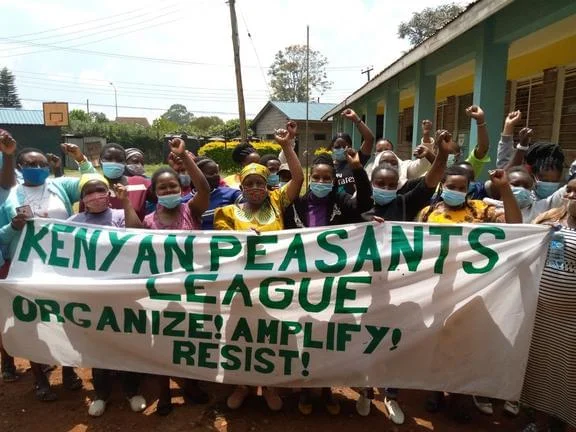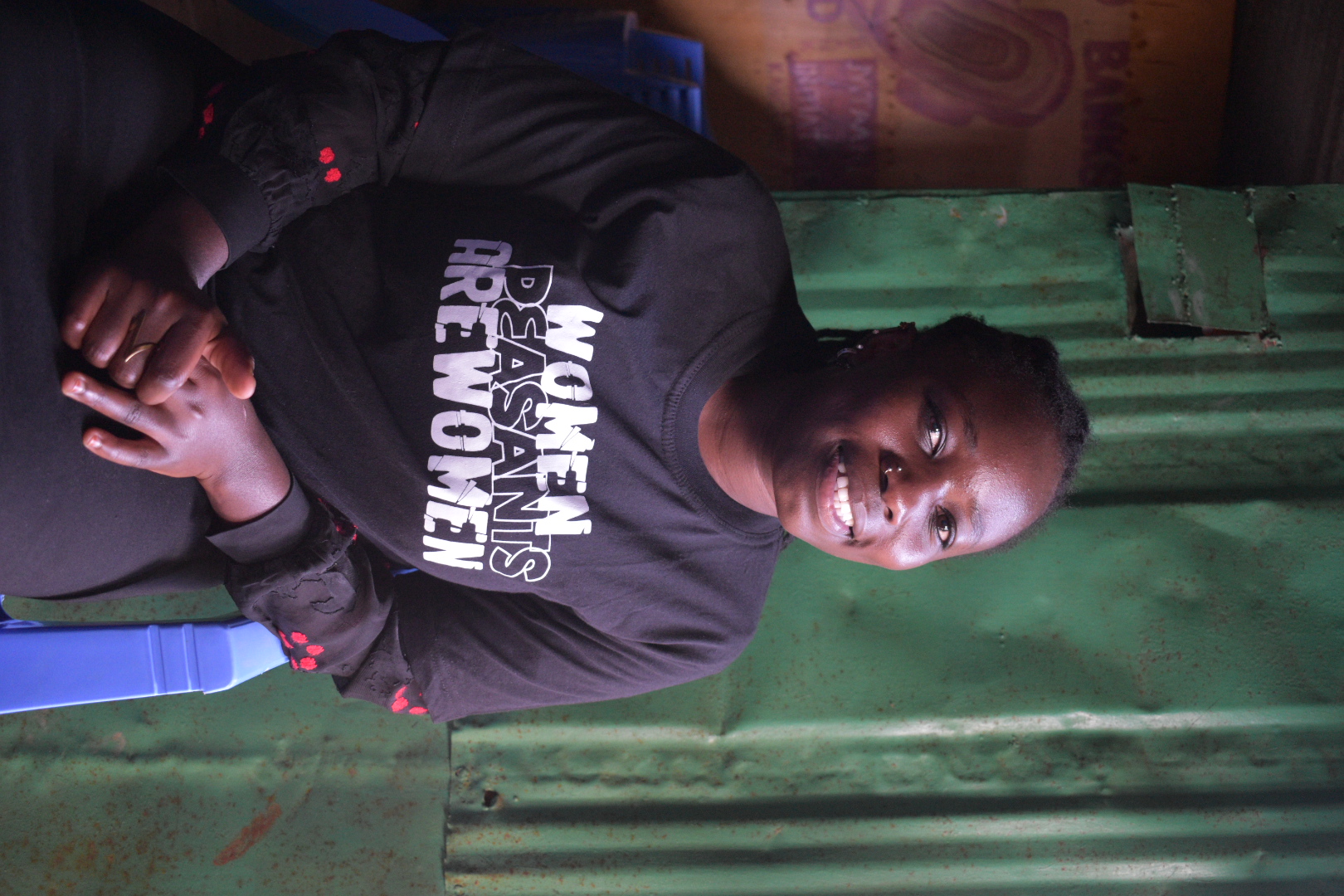When one thinks of Kenya, it’s often the vast landscapes, vibrant culture, and the resilient spirit of its people that come to mind. However, beneath this beauty lies a stark reality for many women who endure the harsh realities of gender-based violence, poverty, and a society where they are often undervalued, underpaid, and unrecognized in their efforts. The law offers them little solace, with Kenyan women possessing only 81% of the legal rights afforded to men.
Among the most affected are the women farmers. In Kenya, a mere 1% of the women involved in small-scale agriculture hold their land in their own names. Access to finance, food, and water hinges on land ownership, leaving many women at a severe disadvantage.
Susan Owiti, the Secretary General of the Kenyan Peasants League Women’s Collective, is unwavering in her mission. “The patriarchal system is oppressing women,” she asserts. “Land is a feminist issue.”
 A Kenyan Peasants League Women’s Collective demonstration in 2022.
A Kenyan Peasants League Women’s Collective demonstration in 2022.
Founded in 2018, the Kenyan Peasants League Women’s Collective champions peasantry, agroecology, and organic farming to achieve food sovereignty, as well as resisting women’s oppression and exploitation. Their integrated approach, combining ecological and social principles, is a powerful tool in the fight for women's rights.
The Collective promotes the use of indigenous seeds, rainwater irrigation, and composting with animal waste, among other organic farming practices. Women exchange indigenous seeds at a community seed bank at the Women’s Collective headquarters in Nairobi. “We give women seeds and chickens to achieve food sovereignty,” says Annette Kendi, convener of the collective’s Kangemi cluster.
However, multinational agricultural companies target rural women, selling them pesticides, fertilizers, and non-indigenous seeds. “They’re lured into signing micro-credit loans with their land as collateral. Most of these women are illiterate,” the Women’s Collective explains.
The threats extend beyond corporate suits and legal documents. Land grabs — illegal land seizures — are rampant. “Most affected are widows,” says Owiti. “When their husbands die, in-laws grab their land. These peasant women lack legal knowledge, so we guide them through the laws that protect their rights.”
Article 60 of the Kenyan Constitution calls for gender equality in land ownership. However, the percentage of women in Kenya who do not own their own land has increased, even though policies have been implemented that are meant to improve gender equity in land ownership. In numerous rural areas of Kenya, widows can face discrimination, eviction, and disinheritance from their marital lands. Unfortunately, pursuing justice is both costly and time-consuming, and many women do not know their rights.
Owiti shares a personal story: when her father died, her uncle threatened her mother, demanding she relinquish the 11 acres they had worked on for decades. “My uncles banged on the door, screaming at her to leave,” Owiti recalls. “But she fought in court and won. Now, they’re afraid. They know they can’t claim even an inch of that land.”
Kenyan Peasants League Women’s Collective treasurer, Josephine Baraza, recounts her struggle. “I lost my husband years ago. My in-laws tried to take my land, but I realized the law was on my side. After a decade in court, I won my land back. Women lack knowledge and are enslaved to a culture made by and for men. Now, I share my story. Women see my land and financial independence. We’re creating ripples of change.”
Legal battles are expensive, but the collective persists. They use table banking, solidarity funds, and crowdfunding for legal fees, low-interest loans, and a rescue center. “Most women we help are abused because they’re not economically empowered. They face physical, emotional, and economic violence. We’re building a feminist economy,” says Mildred Nduta, the Assistant General for the Women’s Collective. They also connect women farmers to markets, linking them directly to consumers.
Beyond providing a safe haven, the collective runs a girls’ empowerment program, offering Sexual and Reproductive Health and Rights (SRHR) education. They provide knowledge, sanitary pads, and condoms to protect against HIV and early pregnancy. Kenya had a teenage pregnancy rate of 15% in 2022, down from 18% in 2014. “Now the girls know when to say no,” says Baraza. “Not long ago, this was not a normal thing for a girl to say. Today, they know their rights. That’s how we know we’re having an impact.”
In the struggle for justice and equality, these women stand resilient. Their stories are about survival, reclaiming their dignity, and demanding the respect and rights they deserve.


